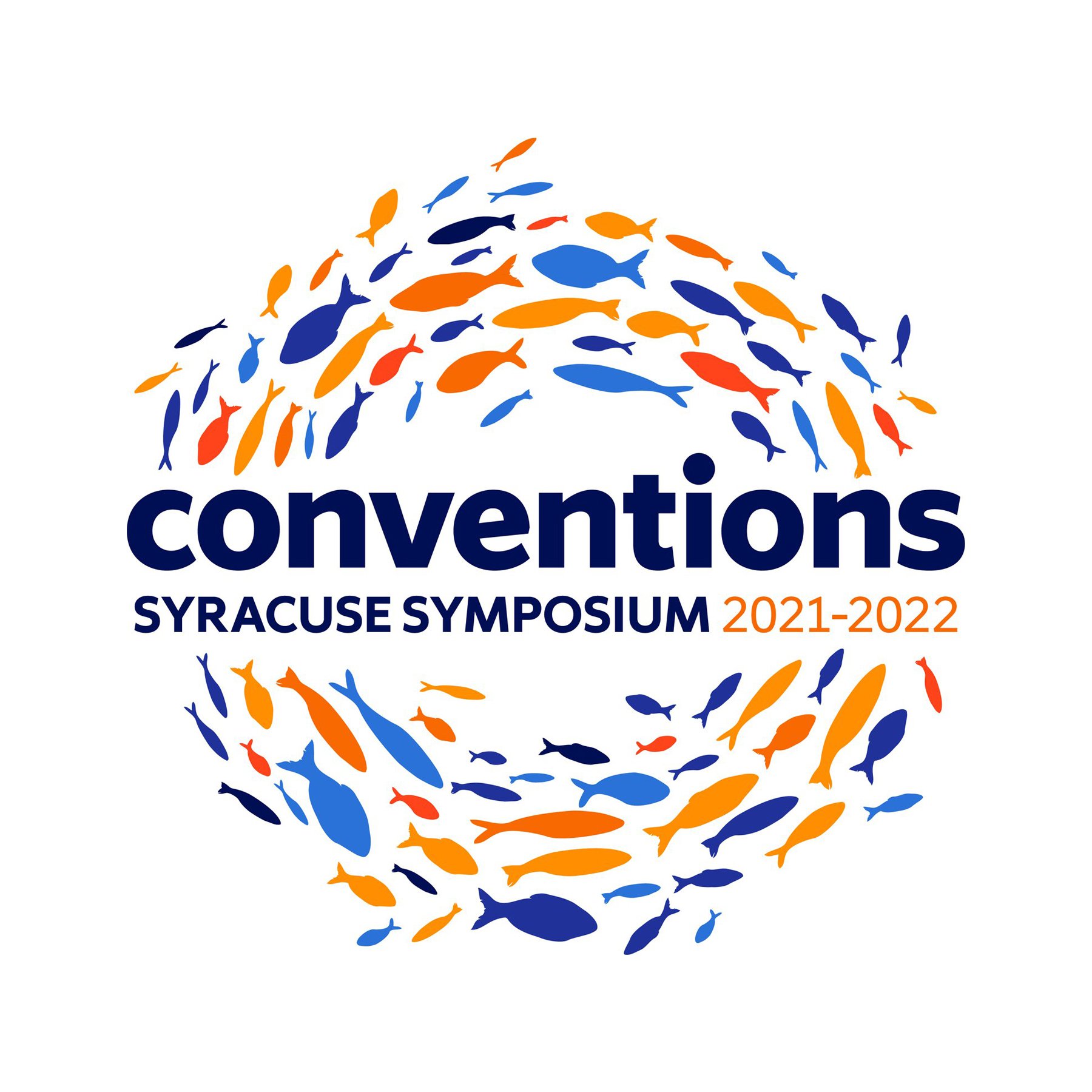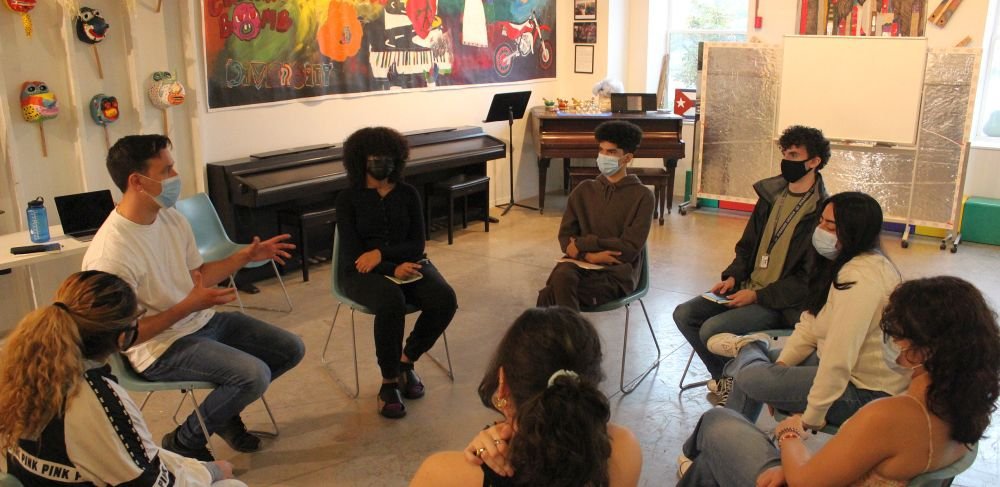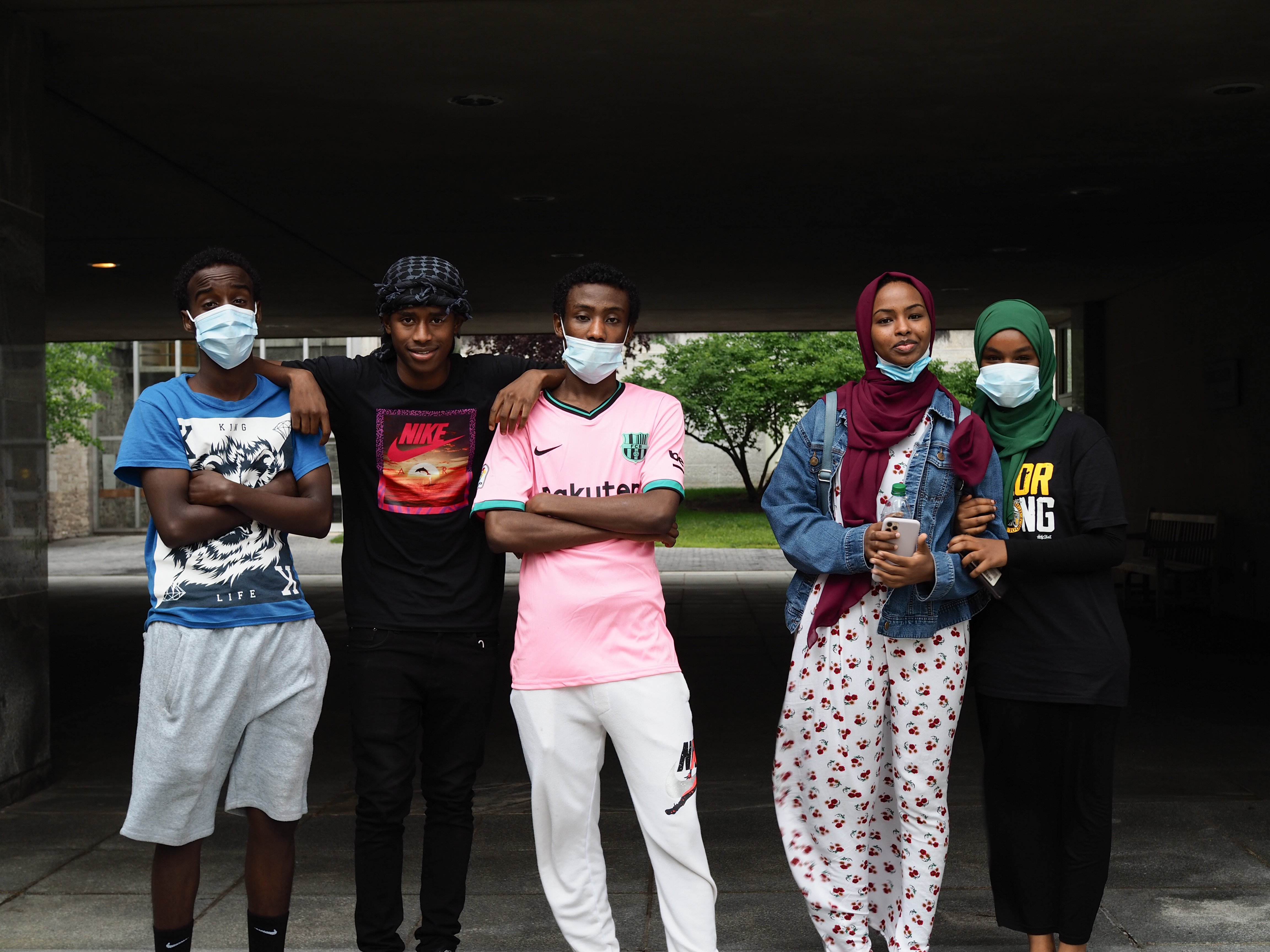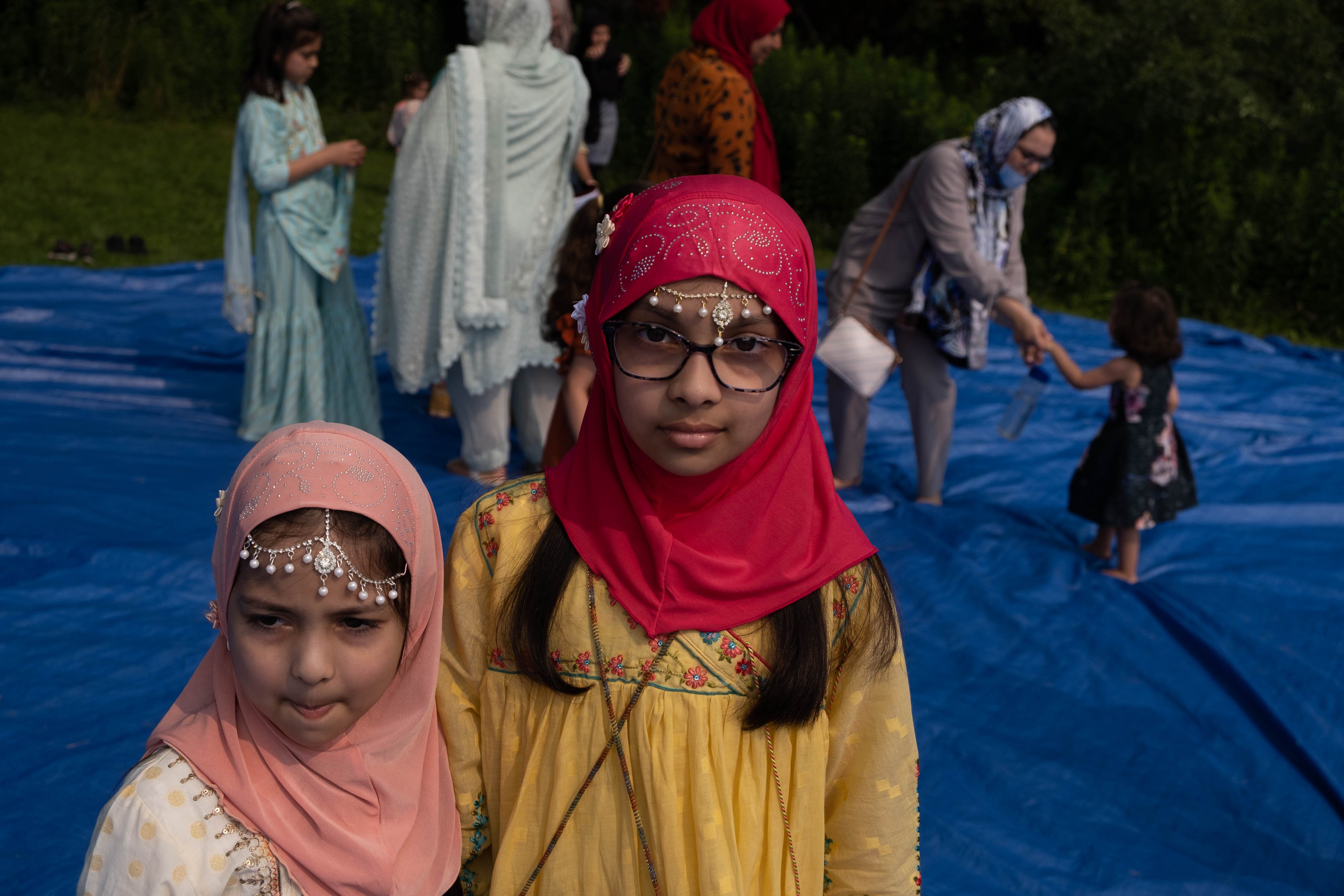Conventional Wisdom
The Humanities Center’s Syracuse Symposium investigates conventions through a diverse selection of spring events.

From COVID-19’s transformative impact on people’s daily lives to the global reckoning against histories of colonialism and racism, norms are constantly evolving. The Syracuse University Humanities Center’s yearlong Syracuse Symposium, entitled Conventions, explores the ever-changing political, social and cultural currents through a series of lectures, workshops, performances, exhibits, films, readings and more.
The Symposium’s theme, chosen by the Center’s Advisory Board, features events intended to inspire critical thinking and encourage ethically based action through a humanistic lens.
According to Vivian May, director of the Humanities Center and the Central New York Humanities Corridor, this spring’s events will help attendees confront and rework powerful norms and expectations that shape people’s lives and imaginations. “We hope the spring Symposium programming provokes open-ended thinking about what conventions we have come to accept, in our collective and personal lives,” says May.
Below is a selection of upcoming Symposium events.

Supporting Urban Communities During COVID
Community-based programs play a critical role in convening and forging solidarity among vulnerable urban communities. La Casita Cultural Center, a program of the College of Arts and Sciences, has been a space devoted to cultural and community exchange, bridging the Hispanic communities of Syracuse University and Central New York for 10 years. But according to Tere Paniagua, executive director of La Casita and of the Office of Cultural Engagement for the Hispanic Community at Syracuse University, the onset of the COVID-19 pandemic and the resulting isolation severed bonds developed through community-engaged programs at La Casita and similar organizations.
“The fracture in our system seems to have deepened, disconnecting people from each other and disengaging communities from service agencies, youth programs and other resources available at no cost to residents,” says Paniagua. “The strategies that worked well to build community connections in the past are not as effective now.”
In response, La Casita is hosting “Engaging Urban Communities: Rebounding from COVID-19 and the New ‘Normal’” – an open, candid dialogue among community organizers, artists, scholars, educators and students about how to address these fractures in Syracuse-area urban communities. They will discuss challenges that can hinder community support and the need to reassess traditional ways of engaging. The event is February 24 from 6 to 7:30 p.m. and will be held in-person at La Casita, located at 109 Otisco St., Syracuse NY 13204, and will also be available virtually, livestreamed via Zoom.
The panelists will reflect on the experiences, inadequacies, and successes of various community engagement initiatives as programs reopened to the public following the COVID-19 shutdown.
“The present circumstances within urban communities living in poverty demand more from agencies established to engage and serve,” says Paniagua. “The panel will consider social and cultural elements; the pandemic-related ruptures that have underscored disparity and inequity; and what changes are needed to achieve positive results.”
The event will be moderated by Paniagua, and panelists include:
Bea Gonzalez, community organizer and former VP, Community Engagement
Fanny Villarreal, Executive Director, YWCA
Elisa Morales, Executive Director, Spanish Action League
Maria Emma Ticio, Associate Professor and Chair, Spanish & Linguistics
Brice Nordquist, Dean’s Professor of Community Engagement
Zachary Pearson, MSW candidate, School of Social Work
Lizmarie Montemayor, Engaged Humanities Undergraduate Research Assistant
Zakery Munoz, Ph.D. candidate, Writing & Rhetoric

Conventions of Care
Since 2019, the Narratio Fellowship has been inspiring Syracuse-area former refugee youth to share their stories in a way that is authentic and meaningful to them. The fellowship launches each summer with a month-long intensive workshop where Fellows learn how to use artistic expression as a storytelling method. They work with artists-in-residence to explore and represent a full range of their own histories and experiences through different creative mediums.
With the 2021-22 cohort marking Narratio's largest class to date, this year’s fellowship included two groups: A poetry cohort, led by Somali-American writer and community organizer Khadija Mohamed, herself a 2019 Narratio Fellow, and a photography cohort led by Columbian-American photographer and filmmaker Stefano Castro in collaboration with Vision Workshops and National Geographic photographers, Matt Moyer and Amy Toensing, who is also a professor at the Newhouse School.
Fellows will present their original poetry and photography at an exhibit premiere entitled, “Conventions of Care” on May 5 at La Casita. The exhibit will be connected to La Casita’s spring showcase celebrating youth art in Syracuse.

The Fellows’ work emanates from an ongoing collaboration with the Metropolitan Museum of Art. The Fellows traveled to the Met in New York City last fall where they worked closely with conservationists and curators learning how to repair, conserve and reconstruct objects. Fellows used the trip as inspiration for their own creative works, as the poetry cohort based their writings on objects from the museum’s Ancient Near East collection.
According to the fellowship’s co-founder Brice Nordquist, who is also associate professor of writing studies, rhetoric and composition and Dean’s Professor of Community Engagement in the College of Arts and Sciences, the themes of conservation and caregiving were pronounced in the Fellows’ work throughout the year.
“What emerged from the poetry cohort’s writing processes were relationships of caregiving between family members across generations,” says Nordquist. “On the photography side, most of the scenes capture moments and practices of caregiving for one another, for self, families, and communities.”
The exhibit will feature photo series centered around relationships of care along with poetry displayed with the Met objects that Fellows used as inspiration. Fragments of the poems will also be connected to photo series to demonstrate the collectivity and connectivity of the Fellows’ work. In addition to presentations by each Fellow, the premiere will feature talks by Nordquist, fellowship co-founder Ahmed Badr and the artists in residence.
According to Nordquist, the Conventions of Care event illustrates one of the major goals of the fellowship: to show each Fellow that they are cultural producers with the power to move audiences to action. “We want them to recognize their own agency and ability as artists and to know that their communities value them and their voices. They have much to teach us about the ethics of care.”
Other Syracuse Symposium events include:
February 22: The Method: How the Twentieth Century Learned to Act
In this Newhouse-hosted talk, Isaac Butler (Slate magazine) describes how Stanislavski’s controversial system of “Method” acting influenced the performance field and many art forms of the period, from Abstract Expressionism to bebop jazz to realist fiction.
March 22: No Words: On the (Un)Making of Black Meanings
Writing Studies, Rhetoric, and Composition hosts Marsha Pearce (University of the West Indies-St. Augustine, Trinidad and Tobago), who considers how physical and digital spaces enable us to experience Black art and the nuances and complexities of Black life in precarious times.
March 23: Spatial Rhetorics and Multimodal Curation
Marsha Pearce (University of the West Indies-St. Augustine, Trinidad and Tobago) offers a mini-seminar—designed primarily for a specialist audience, but open to all—focused on Life and Space-Time; Space as Meaning Between Words; and Space-Imagination-Resistance.
April 11: Disrupting Conventions: Creating a Future with Housing for All
An interactive workshop led by theater artists Mark Valdez and Ashley Sparks offers an opportunity to envision what’s possible in housing for the Syracuse community. Valdez and Sparks are collaborators on The Most Beautiful Home...Maybe, performed this summer at Syracuse Stage.
April 12: Drawing Repurposed: Sketching a Path to Self-Reflection and Social Justice
In this public lecture hosted by the Center for Learning and Student Success, Bradford Grant (Howard University) illustrates how drawing gives us tools to re-envision ourselves and transform our communities.
April 13: Seeing with the Possibility of Being Changed, Drawing as Meditation: A Hands-On Workshop
Participants (re)discover drawing as a means of self-reflection, guided by Bradford Grant (Howard University).
April 21: What’s on the earth is in the stars; and what’s in the stars is on the earth
Artist Suzanne Kite (Concordia University-Montreal) uses emerging technologies to explore conflicting conventions of American settler colonial identity and Lakota epistemologies.
For more information about the Humanities Center or any of this year’s Symposium events, visit the Humanities Center website.
